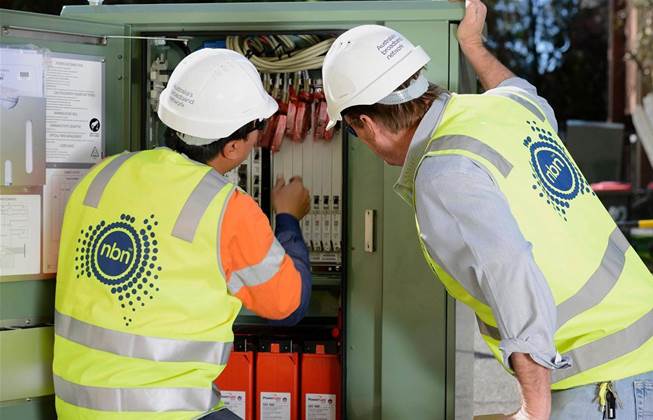A nearly three-year process to agree new price and non-price terms for the NBN is complete, after the ACCC agreed to a varied special access undertaking (SAU) after several rounds of changes.

The agreement is in some ways a formality after retail internet providers grew tired of the process, and particularly of the extra costs they were incurring as things dragged on.
That means some concessions on all sides; even the ACCC notes today that the variation it has agreed to “includes some matters that we do not support” but it’s assessed won’t have a “material bearing” on the interests of broadband users.
The big changes are to NBN pricing - with connectivity virtual circuit (CVC) bandwidth charges ending for services of 100Mbps and above from December 1, and for all other services by mid-2026.
NBN Co will also set 25/5Mbps as the entry-level broadband speed in what’s called the first regulatory cycle, which runs for the first three years of the agreement.
“Under the new pricing structure, a new basic voice and data service will be offered at about half the price of NBN Co’s existing entry level broadband offer,” the ACCC said in a statement.
“Wholesale prices for 25Mbps and 100Mbps or faster speed services will also be reduced, offset by a small increase in the wholesale price for the 50Mbps speed service.”
The ACCC said price changes now would shield customers from potentially larger hikes in the future, when NBN Co will be allowed to start recovering a portion of the costs it has sunk into the network.
“In our view it would be better to commence an orderly transition to efficient pricing now, and that this occurs gradually over time and that households and businesses are protected from sharper price increases in later years,” the ACCC said in its report. [pdf]
Through the process, NBN Co has agreed to constrain the amount it might try to recover in future, and the ACCC will also have further input into the way that works down the track.
Finance minister Katy Gallager and communications minister Michelle Rowland welcomed the new SAU, noting it “required a change of government to reset the regulatory process” to reach this point.
“The [original] proposal, lodged under the former Coalition government, allowed price increases of inflation plus three percent a year on some products, with no prospect of acceptance by the ACCC,” they said.
“The ACCC has made this decision as the independent regulator, having regard to the long-term interests of end-users.
“The government thanks the ACCC, NBN Co and the industry for their extensive engagement, patience, and willingness to create space for problem-solving.”
NBN Co’s chief regulatory affairs officer Jane van Beelen called the SAU’s passage “the start of an important new era for the Australian telecommunications industry.”
“We have worked closely with the industry, the ACCC and government to develop regulatory processes and establish a sustainable future course for wholesale prices and service standards,” she said.
“We acknowledge and appreciate the industry’s positive engagement and collaboration over the last two years to reach this landmark outcome.”
Van Beelen added that the new SAU “puts the responsibility and investment risk on NBN Co to meet the expected growth in data demand over the next two decades, while giving the company the opportunity, subject to market conditions, to earn the minimum revenues required to invest in the network to deliver faster speeds and greater data capacity to customers.”
Aussie Broadband was the first retail service provider to welcome the SAU’s passage, noting the “many industry roundtables, submissions and arguments from regulators, retail service providers, ministers and stakeholders” to get to this point.
Managing director Phillip Britt said the removal of CVC charges on higher tier plans would make them “more affordable”.
Aussie Broadband has traditionally had a customer base that is substantially skewed towards those higher tiers.
The practical impact of the changes, particularly to the price model, is what many NBN customers will now be watching.
Britt said that Aussie Broadband intends to inform its customers “of the precise changes to their individual plans on October 20, with the changes to come into effect on November 21.”

.jpg&h=140&w=231&c=1&s=0)
.png&h=140&w=231&c=1&s=0)


















